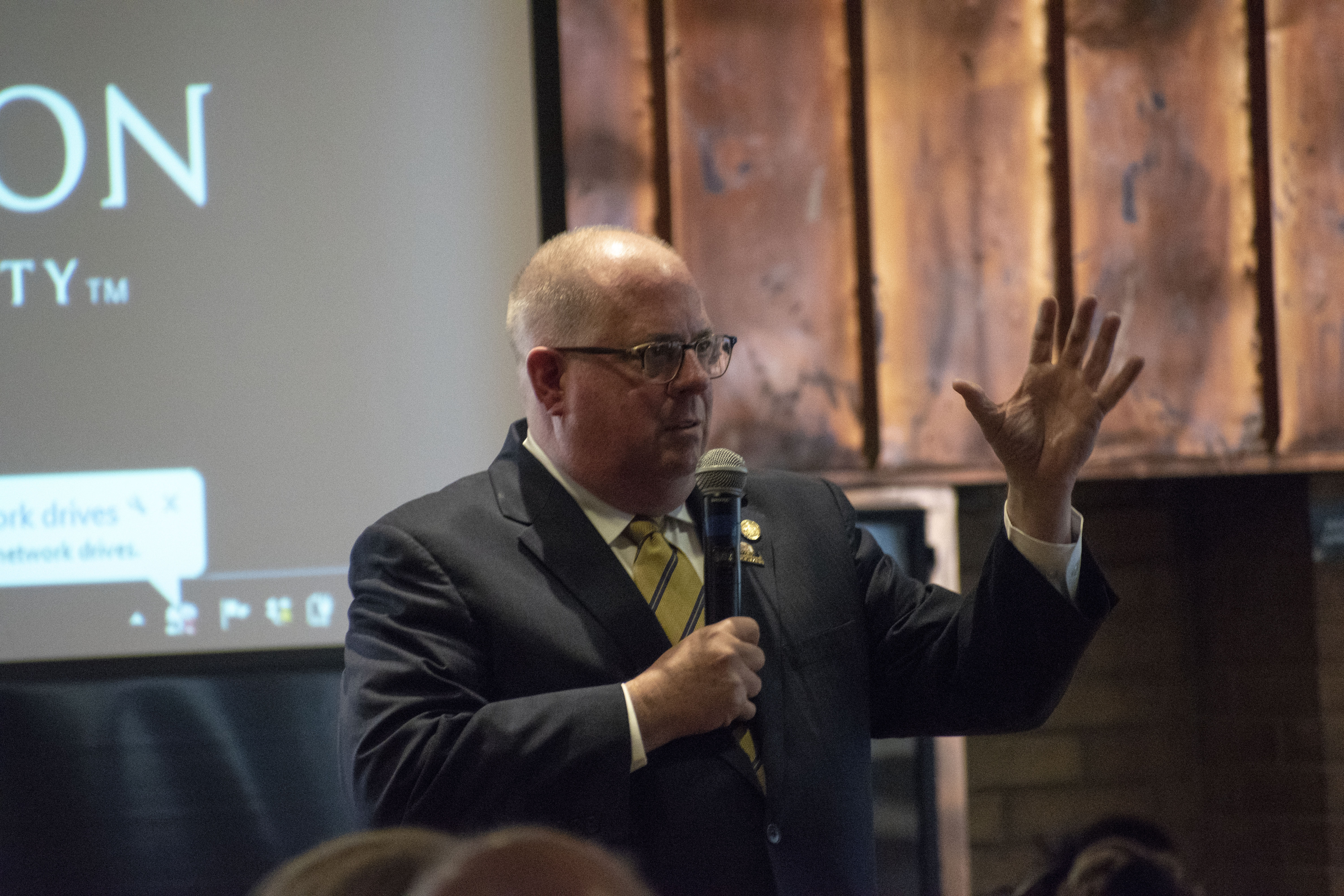
Governor makes a case for political bipartisanship
By: Sophia Bates, Staff Writer
Photo by Brendan Felch/ The Towerlight
Maryland Governor Larry Hogan made a case for political bipartisanship while speaking to Towson University professor Richard Vatz’s advanced persuasion class on April 12.
With Maryland’s gubernatorial primary elections on June 26, Hogan faces no Republican challengers. But the incumbent governor is still gearing up for the general election on Nov. 6. as he looks to appeal to a dominantly “blue” Maryland.
Hogan said he doesn’t look at issues from a Republican stance, but instead by addressing problems straight on and working issue by issue.
“I don’t really care that much about Democrat and Republican politics,” Hogan said. “I just care about getting things fixed.”
Hogan hopes to persuade moderate voters to cast their ballot for him.
“Most people, I believe, in Maryland are somewhere in the middle,” Hogan said. “In our country, there is a small percentage of those that consider themselves very far left, and another small percentage that consider themselves very far right. In our state, there are mainly people who consider themselves moderate, or somewhat left and right of center.”
Hogan addressed his campaign’s mission of sticking to their original goals and message as much as possible, and how this is a key factor in decision-making.
“People said that we had really great message discipline, that we always stuck to the message,” Hogan said. “We really did focus on what we thought was important. If everything turns into a priority, then nothing is really your priority.”
On April 9, Hogan signed a bill into law that addressed school safety and security following the shooting in February in Parkland, Florida.
“Right after the tragedy in Broward County, we proposed dramatic legislation that was some the most aggressive in the country,” Hogan said. “Maryland already has one of the toughest sets of gun laws in America. What we proposed is that out of the casino revenue, we would put about $200 million into school safety.”
Vatz explained the tradition of inviting the governor to speak as an opportunity for students to feel more engaged in the political realm.
“I think that students are always very distant from the governor,” Vatz said. “They read about him, but they never meet him. He engages really well with the students, and it’s good when they feel free to open up and ask questions.”
Hogan spent most of his talk answering students’ questions, including what his favorite method of persuasion is.
The governor described himself as being direct, and that he “doesn’t put a spin on things.”
“I just tell it exactly how it is,” Hogan said. “People know that when I say something, I am saying exactly what I think, whether people will agree or disagree with it.”
Hogan emphasized the importance of working together, saying that “‘cooperation’ isn’t a dirty word.”
“Even if you are a passionate Democrat, or passionate Republican, you must admit that the divisiveness and what we see in Washington is not working,” Hogan said.
Sophomore Nia Fitzhugh respected Hogan’s bipartisanship.
“The main point he was stating is that he stands on middle ground, and I think that really helps voters when they have to address who to vote for,” Fitzhugh said. “I think that now, everything is so one side or the other, which puts a lot of strain on who the person is rather than what they stand for.”

